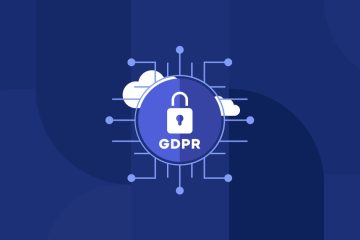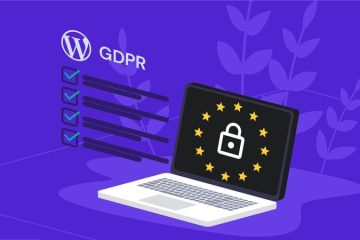The Future of Regulatory Compliance for Sustainable Growth

In today’s rapidly evolving business landscape, organizations face a growing demand for regulatory compliance to ensure their operations remain legal, ethical, and sustainable. With the increasing complexity of global regulations, businesses are often tasked with navigating an intricate web of compliance requirements across jurisdictions. Regulatory compliance has traditionally been seen as a reactive measure—something that organizations must manage to avoid legal repercussions. However, in an era where sustainability and long-term growth are paramount, regulatory compliance is now viewed as an integral strategy for fostering sustainable growth.
The future of regulatory compliance is no longer just about avoiding penalties but about leveraging compliance as a key driver of value creation. From environmental regulations and data protection laws to labor rights and tax transparency, businesses must adapt to an increasingly complex regulatory environment that demands transparency, ethical practices, and accountability. In this article, we will explore how regulatory compliance will evolve in the coming years and its potential role in ensuring sustainable growth for businesses of all sizes.
1. Evolving Regulatory Landscape
The future of regulatory compliance is closely tied to the growing emphasis on sustainability in business practices. Governments and international organizations are ramping up efforts to address pressing issues such as climate change, environmental degradation, and human rights violations. Regulations will continue to become more stringent, demanding that businesses not only comply with local laws but also adhere to international standards of transparency and social responsibility.
For instance, as climate change becomes a more urgent concern, environmental regulations will become increasingly sophisticated, requiring companies to report their carbon emissions, energy usage, and waste management practices. Furthermore, regulations will likely expand to include supply chain transparency, forcing businesses to demonstrate that their suppliers adhere to similar environmental and social standards. In this context, regulatory compliance will be an essential tool for businesses to maintain credibility, mitigate risk, and contribute to the global sustainability agenda.
Key Insight: As environmental and social concerns take center stage, businesses will need to ensure compliance with increasingly complex sustainability regulations, necessitating a shift towards more robust and comprehensive compliance strategies.
2. Integration of Technology in Compliance Management
One of the most significant developments in regulatory compliance is the increasing reliance on technology to streamline and enhance compliance efforts. As regulations become more complex, compliance management systems (CMS) are evolving to automate tasks such as data collection, reporting, and risk assessment. Advanced technologies like artificial intelligence (AI), machine learning (ML), and blockchain are poised to revolutionize how businesses manage regulatory compliance.
AI can be leveraged to analyze large volumes of regulatory data, helping organizations stay ahead of regulatory changes and ensuring that their operations remain in line with the latest legal requirements. Machine learning can also help companies predict potential compliance risks, enabling proactive measures rather than reactive responses. Blockchain, on the other hand, offers a decentralized and immutable way to track data and transactions, enhancing transparency and providing an auditable trail that can improve compliance with data protection and financial reporting regulations.
By adopting these technologies, businesses can not only reduce the burden of compliance management but also enhance accuracy, reduce human error, and ensure real-time monitoring. This technological integration will make compliance more scalable, allowing companies to adapt to changing regulatory landscapes efficiently.
Key Insight: The integration of AI, ML, and blockchain will enable businesses to automate compliance processes, mitigate risks, and ensure real-time adherence to evolving regulatory requirements.
3. Data Protection and Privacy Regulations
As data becomes one of the most valuable assets in today’s digital economy, the protection of personal and sensitive information will continue to be a significant regulatory focus. The General Data Protection Regulation (GDPR) in the European Union has set a global precedent for data protection laws, and many other regions are following suit with similar regulations. The future of regulatory compliance will see an expansion of data privacy laws that emphasize consumer rights, data security, and corporate responsibility.
For businesses to ensure compliance in the future, they will need to implement robust data governance frameworks that protect consumer data while maintaining transparency in data collection, processing, and storage. This includes adopting encryption, anonymization, and secure data storage practices, as well as giving consumers more control over their personal information. Compliance will also extend beyond just protecting data; companies will be required to actively audit and demonstrate compliance with privacy regulations, incorporating data protection principles into every aspect of their business.
As businesses scale, managing data privacy across multiple regions will become increasingly complex. To address this, organizations will need to invest in global data protection strategies and ensure that they are compliant with both local and international laws. Additionally, the rise of cloud computing and big data analytics will necessitate greater vigilance in how data is shared and accessed across platforms.
Key Insight: As data protection regulations expand globally, businesses must prioritize robust data governance and transparency, ensuring they protect consumer privacy while maintaining compliance with a growing body of privacy laws.
4. Supply Chain Transparency and Ethics
In the future, regulatory compliance will also increasingly focus on ensuring that companies maintain ethical practices across their supply chains. Consumer demand for ethical sourcing, fair labor practices, and environmental responsibility is on the rise, and regulators are responding by requiring more stringent reporting on supply chain activities.
Regulations such as the UK’s Modern Slavery Act and France’s Corporate Duty of Vigilance Law are pushing businesses to scrutinize their supply chains for potential human rights violations, unethical labor practices, and environmental impacts. In the future, businesses will be expected to adopt a holistic approach to compliance that extends beyond their own operations and into their entire supply chain, ensuring that suppliers adhere to the same high standards of sustainability, labor rights, and corporate governance.
To scale compliance efforts in this area, companies will need to adopt technology solutions such as blockchain to track and verify ethical sourcing and labor practices. Additionally, businesses will be required to maintain clear, publicly accessible records of their supply chain practices to demonstrate transparency and accountability to regulators and consumers alike.
Key Insight: The future of compliance will demand that businesses take responsibility for the entire lifecycle of their products, ensuring that supply chains are ethically managed and transparent.
5. Sustainability Reporting and Accountability
In line with the growing emphasis on environmental and social issues, sustainability reporting will play an increasingly critical role in regulatory compliance for businesses. While many companies have already adopted sustainability initiatives, the future will see a rise in mandatory sustainability disclosures that go beyond traditional financial reporting.
The European Union’s Corporate Sustainability Reporting Directive (CSRD) is one example of this trend, requiring large companies to disclose detailed information about their environmental, social, and governance (ESG) practices. This regulatory shift will place significant pressure on businesses to not only track their environmental and social impact but also provide transparent, verifiable data to regulators, investors, and the public.
To scale sustainability compliance effectively, companies will need to invest in tools and processes that enable accurate and comprehensive reporting. This could include developing internal systems to track carbon emissions, water usage, waste management, and social impacts, as well as utilizing third-party verification services to ensure the credibility of their reports.
Key Insight: Mandatory sustainability reporting will require businesses to adopt robust tracking and reporting systems that provide transparency into their ESG practices, creating new opportunities for value creation and risk mitigation.
6. Collaborative Compliance Networks
As businesses become increasingly global, regulatory compliance will require greater collaboration between companies, regulators, and third-party service providers. Collaborative compliance networks, in which organizations share best practices, insights, and resources, will become more common. These networks will allow businesses to stay up-to-date on regulatory changes, share compliance tools, and work together to address common challenges.
Additionally, partnerships with external stakeholders such as regulatory bodies, auditors, and technology providers will become critical to ensuring that compliance efforts are both efficient and effective. The rise of industry-specific compliance consortia and collaborations will foster a collective approach to meeting regulatory requirements, making compliance more scalable and less burdensome for individual companies.
Key Insight: Collaborative networks will play an essential role in scaling regulatory compliance, allowing businesses to share resources, stay informed, and address challenges together.
Conclusion
The future of regulatory compliance for sustainable growth is undoubtedly complex, but it also presents significant opportunities for businesses to enhance their value proposition. As sustainability and ethical practices become central to business success, companies will need to go beyond mere compliance and integrate responsible practices into every facet of their operations. By embracing technology, ensuring data protection, enhancing supply chain transparency, and adopting comprehensive sustainability reporting, businesses can turn regulatory compliance from a burden into a competitive advantage.
As regulatory frameworks evolve, businesses that adapt early to the changing landscape will not only meet the demands of regulators but will also be better positioned to thrive in a future where sustainability and compliance are fundamental drivers of success. The future is clear: compliance is no longer just about avoiding penalties, but about creating a resilient, responsible, and sustainable business model that drives long-term growth.
More News
-
What Experts Say About Tax Planning That Works
February 3, 2025 -
Top 10 E-commerce SEO Strategies That Work
April 3, 2025
Top News
-
Managing International Clients Legally With a Freelance Visa
October 16, 2025 -
Training and Development for Business Service Professionals
October 8, 2025 -
Business Service Continuity Planning: Preparing for Disruptions
October 8, 2025
Most Viewed
Recent Posts
- Managing International Clients Legally With a Freelance Visa
- Training and Development for Business Service Professionals
- Business Service Continuity Planning: Preparing for Disruptions
- Corporate Wellness ROI: Why Businesses in Singapore Are Investing in Gym Fitness Programs for Employees
- Innovative Solutions for Green and Efficient Industries
Archives
- October 2025 (3)
- September 2025 (2)
- July 2025 (2)
- May 2025 (5)
- April 2025 (6)
- March 2025 (10)
- February 2025 (9)
- January 2025 (7)
- December 2024 (4)
- November 2024 (1)
- January 2023 (1)
- May 2022 (1)
- March 2020 (1)
Categories
- Business (10)
- E-commerce & Online Business (6)
- Finance & Accounting (5)
- HR & Hiring (5)
- Industries (6)
- Legal & Compliance (5)
- Management & Growth (5)
- Marketing & Branding (5)
- Technology & Tools (5)










